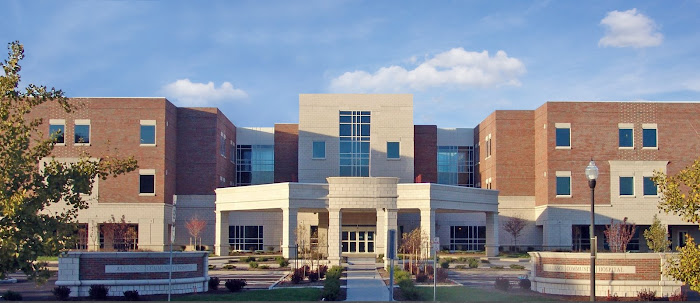Answer, a possible cure for managed care, a boost for an ailing economy and more knowledgeable healthcare consumers.
In an article by Robert Pear that was published in the New York Times January 9, 2004:
- Health spending was 15 percent of the nation’s economy
- 1.55 Trillion
- Projections put health spending at 17.7 percent of GDP by 2012
- Spending for hospitals and prescription drugs seemed to be tapering off
On August 12, 2007 in the Huckabee Roundup summarizing some of the presidential candidate’s views:
- The health care system in this country is irrevocably broken, in part because it is on a health care system, not a health system
- Health care spending is close to 17% of our gross domestic product
- Our health system is making our businesses non-competitive in the global economy
Well, it is only three years since the earlier prediction of 17% of GDP. Gosh we are five years ahead of schedule. Unfortunately, I expect that there will be lots of good ideas bantered about throughout the next 15 months and little change until 2009 or beyond.
In Media Beat there was an article by Kip Sullivan (8/14/2007):
- The call for rationing became audible in the late 1980s It got louder in the early 1990s as universal health insurance rose to the top of the nation’s agenda
- Five years even louder as it has dawned on pundits that HMOs are incapable of reining in health care inflation The U.S. system may be wasting up to 300 to 400 billion dollars a year It would cost 40 billion to cover the uninsured with insurance
- A conservative estimate of the cost of excessive administration spending and excessive prices alone comes to 15 percent of total health care spending
- Excessive administrative spending refers both to the administrative spending of insurers and medical providers
- The issue is whether we could spend less than a fourth of our health care dollar on clerks, HMO police, ad writers, lobbyists, merger specialists, and a host, of other functions who do not provide health care to patients
- Administrative spending grew rapidly as managed care spread. Because HMOs hire people to supervise doctors and hospitals and because doctors and hospitals hire people to deal with HMOs
- If you give a dollar in premiums to an insurance company it will keep 15 to 30 cents for overhead and pay out 70 to 85 cents for medical services
- The GAO found that U.S. providers would enjoy administrative savings equal to 4.5 % of total health care spending primarily because billing for physicians is so much easier when they have to bill just one insurer
Where do we start?
Since the health care system is sick we, who work in the system, should start the process. Modern Healthcare’s August 27, 2007 issue recently ran the article, “Religious Experience” by Cindy Becker in which she quoted Sister Carol Keehan. Sister Keehan is leading us in the right direction. She says, “A good (healthcare) system is not necessarily only one way…On the balance we are not looking for the perfect system…So we’re say as opposed to advocating your plan vs. my plan, we have been working to develop principles so we can say any healthcare reform plan should be measured by these principles.”
Let us begin with the transparency on the information we have; we need to figure out how to share it. We get quality data on how we compare to other hospitals from the insurers. It is only for internal use. Let’s agree to share it. If we are low and it is shared maybe we will work harder to change it. Let’s ask our customers for their EOBs (explanations of benefits paid) so we can see how others are being paid for the services they provided. Let’s share our pricing with our consumers. They need to know before their service what their co pays will be, not after. If we are not efficient, competitive or can’t explain the value difference in price or service then maybe we don’t deserve the business; isn’t that what today’s free market is all about?
For those who don’t take care of their own health insurance when they are capable of doing so, they should bear greater out of pocket expenses. I’m usually not in favor of more government control, but I can vote on tax increases (force those of us in healthcare to reallocate what we do) so why not a single payer system, with true transparency on how hospitals and doctors are actually performing and let knowledgeable consumers decide for themselves.
As bureaucratic as it may be, the fragmented system of managed care is far more difficult a course to navigate. It is a shame with all the wonders of medicine available to us that we don’t have a better system. Sister Carolyn is right. “Until we have that critical mass of American people saying, ‘WE WANT IT,’ things won’t change.” Let’s keep educating those we serve.
-Stan
Writen: August 28, 2007
